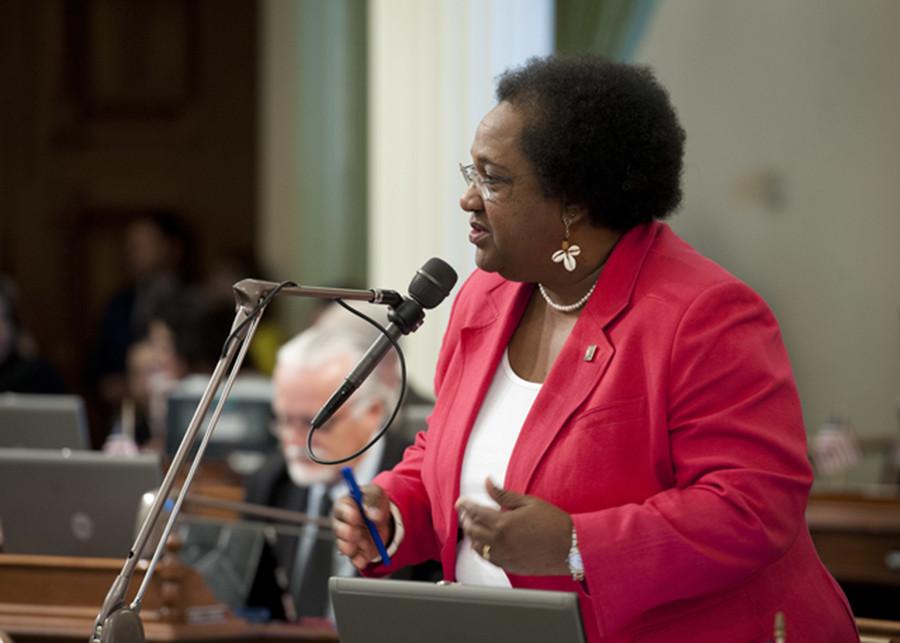Assemblymember Shirley Weber and Senator Marty Block spoke on campus to student leaders on Nov. 13 as part of San Diego State’s first Government Outreach Day. The event was designed to give SDSU students and professors a chance to speak directly with legislators and to share their perspectives.
The event was organized by three Lobby Corps members, a student-at-large group under the Associated Students External Relations Board, as well as A.S. Vice President of External Relations Tyler Aguilar.
Sarah Bentley, Lobby Corps chair and organizer, said the event allowed people to put faces to the names of legislators discussing issues that affect students.
“Because a lot of times when you go into lobby, which is the purpose of Lobby Corps, you don’t necessarily have those personal connections to where they really have a feel for your campus and what you’re advocating for,” she said.
Both Weber and Block have a long history as former faculty at SDSU.
“The two of us are kind of unusual in that we both come from a higher-ed background and we both really understand higher-ed,” Block said at the event.
Although Weber and Block’s responsibilities now cover the entire state of California, they both still care a lot about SDSU, Block said.
“I think it’s fair to say San Diego State has a special place in our hearts, and we often think of San Diego State when we’re doing things for the whole system,” he said.
The legislators talked about a wide range of topics affecting students during the discussion session.
“I think a lot of really good topics were brought up,” Aguilar said. “I liked the challenging questions from the students, and it was really good to see the legislators on their heels.”
Students asked about legislation concerning increasing graduation rates, student success fees, racial profiling, future DREAM centers in the California State University system and possibly making Qualcomm Stadium an SDSU site.
Although the event was open to the public, it was not intended to be a public forum due to the smaller size of the Council Chambers, Bentley said.
Only about 10 additional chairs were provided for members of the public, besides those who were invited.
Students Overcoming Struggle Chair Jeanette Corona said the space didn’t provide accessibility for a lot of students.
“Automatically, I feel there’s an assumption that students aren’t going to be present,” she said. “It makes us as students feel like we don’t matter, or they don’t care about our presence, because we want to be a part of this.”
A diverse array of student groups and professors were invited to the event, Bentley said.
“Of course we were interested in finding organizations that really rang true with the legislators in attendance, but we were also looking for organizations that would really give them a great … overview of San Diego State,” she said.
Bentley said invitations were based on information from Student Life and Leadership, as well as previous contacts.
Corona, who is also a member of the Association of Chicana Activists, was part of a student group that was not invited.
“We want to help make change, and we want to be part of these discussions, but how is that going to happen when, one, we’re not being invited (and) two, we’re not even being included,” she said.









